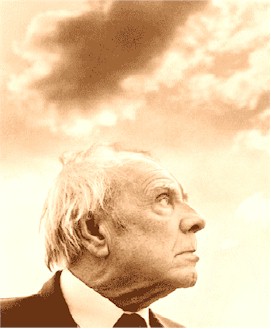
Borges' sketch "Theme of the Traitor and the Hero" is a work that is prime for adaptation. When one reads it through the lens of adaptation theory--particularly Robert Stam's "Beyond Fidelity: The Dialogics of Adaptation"--the Borges work reads like a sort of narrative blue-print.
The story begins with Borges creating an amorphous setting for his narrative. He writes "The action takes place in an oppressed and tenacious country: Poland, Ireland, the Venetian Republic, some South American or Balkan state...". Though the narrator eventually decides to set the work in Ireland, the naming of various other localities at the onset of the work already demonstrates that "the mechanism" (as Bertolucci puts it) of the work more crucial than its details.
Bertolucci does not specifically clarify for us what he means by "mechanism" but in this context, and the context of his adaptation of the Borges work, the mechanism could be considered the over arcing narrative. For Bertolucci this is a "young man [who] is pursuing [...] a kind of voyage thorugh atavistic memory, through the precociousness" (52)
Stam's essay on adaptation opens with a critique of critics and readers who search for fidelity in adapted works. He writes that it is "questionable whether strict fidelity is even possible". Borges' loose sketch, as well as Bertolucci's interpretation of it, seem to ignore the idea of fidelity in the details of narrative and be concerned with the interpretation of the deeper themes.
I agree. The fact that Borges does not flesh out the story and even suggests alternative versions makes it a particularly apt text to adapt--Poland, Latin America, the Republic of Venice. (See my blog entry). What Borges gives us is basically a "mechanism"--the plot of how a traitor is presented as a hero--which can be, in principle, transferred to infinite different locales and adapted to different media(film,theater, comics, novels, etc.) In fact, given that Borges's story is basically a mechanism, to keep using Bertolucci's phrase, the question of what it means to be "faithful" changes completely. It is the "mechanism," which I assume means the barebone plot, to which the author would be "faithful," not descriptions of specific characters, etc. Therefore, one can argue that Bertolucci is actually faithful to Borges, since he overall keeps the "mechanism" intact.
ReplyDelete